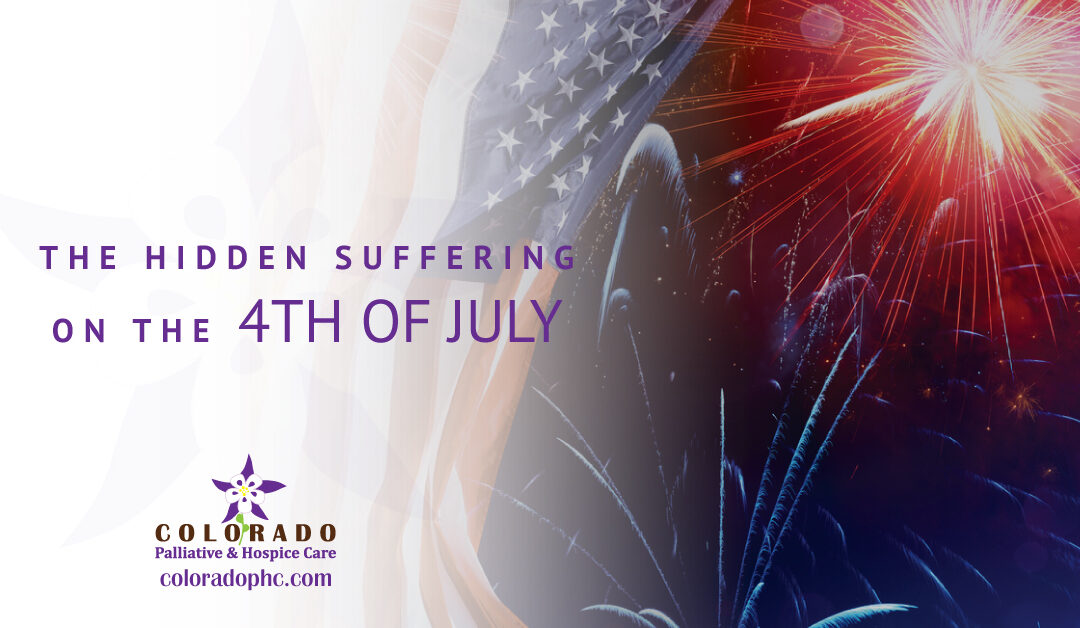For many of us, the 4th of July is a time to celebrate America’s independence with backyard barbecues, time spent on the lake, and other social gatherings. But, the holiday can be an excruciating time for people with illnesses such as dementia and PTSD.
The Problem with Fireworks and Loud Celebrations
The biggest culprits of the 4th of July (and many other summer festivities) are the fireworks and loud celebrations.
People who have dementia often become confused during fireworks as to why their typically quiet evenings are now full of loud noises. Unfortunately, these firework displays also often go off when the patients are in bed — inciting a jarring and frightening unexpected wake-up.
Evening fireworks may also aggravate “sundowner syndrome,” when people with dementia become highly agitated and aggressive when the sun goes down. This agitation worsens when their routines are disrupted.
Some communities allow people to buy their own fireworks and shoot them off as they please. This is even worse for people with dementia and PTSD as their entire evenings can become overrun with the fireworks display’s loud noises and bright lights. There tends to be increases in sleep disruptions and anxiety as the blasts go off for several hours over the course of several nights.
How to Help
If you’re a caregiver of someone with dementia, Alzheimer’s, or PTSD, consider these tips to alleviate some of the disruptions from the 4th of July fireworks:
- Take a trip. If your neighborhood is particularly active with fireworks, or your loved one’s hospice facility is near a large display, take them on a trip during peak fireworks hours to get away from the excitement. Depending on your loved one’s hospice care and situation, you may be able to take them to a hotel in a secluded and quiet location for the night. Speak with their care team ahead of time to see what you can arrange.
- Sit with them. If your loved one can’t or doesn’t want to leave their assisted living community, spend the evening with them to distract them from the noises and reassure them that they will soon pass and everything will return to normal.
- Get headphones for your loved one to wear or earplugs for them to sleep in. You can also try a white noise machine.
- Speak with your loved one’s hospice care team to see if they know of any options to minimize the sound or medication to mitigate the anxiety from the fireworks.
If you have any questions about getting through the 4th of July festivities with a loved one in hospice care, please don’t hesitate to contact our team. We are here for you.

